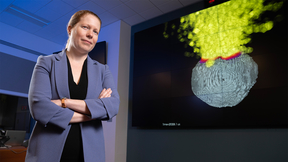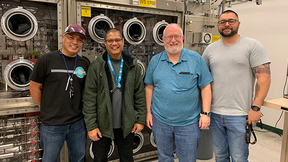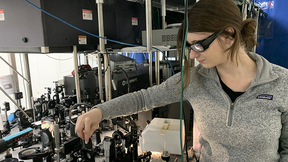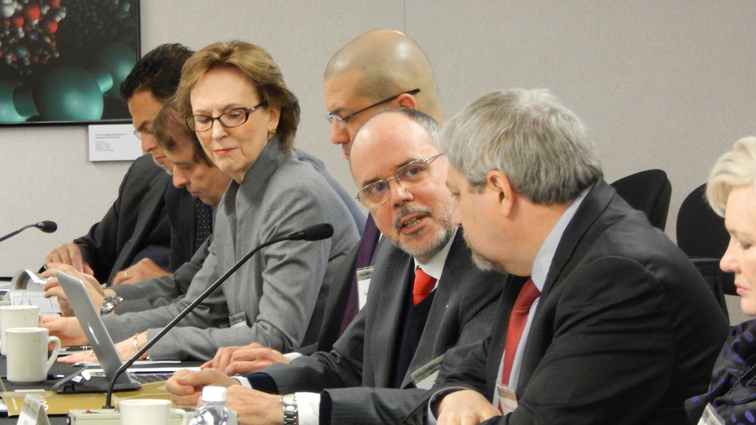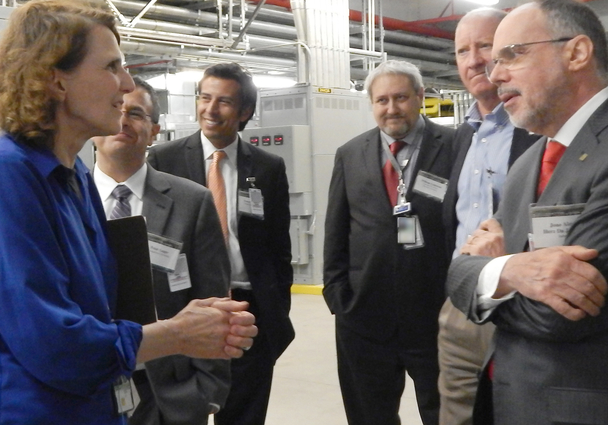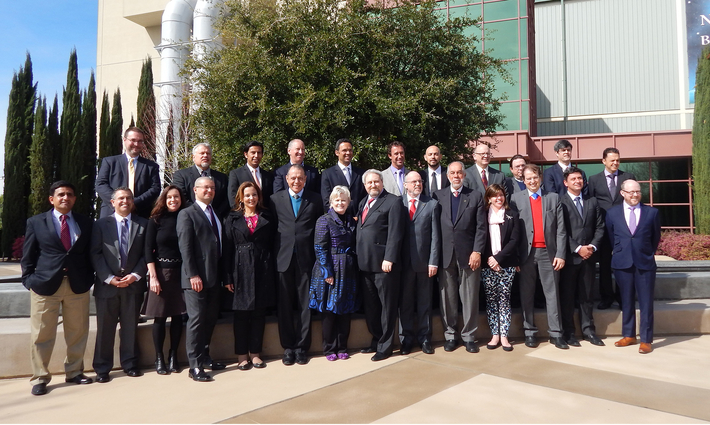Lab hosts U.S.-Brazil meeting to collaborate in science and technology
The two-day forum, sponsored by the U.S. Council on Competitiveness (CoC), was the second U.S.-Brazil Bi-National Innovation Platform Steering Committee meeting to expand collaboration between the two countries, which represent the Western Hemisphere's largest economies.
"The Innovation Platform will become the key, hemispheric launch pad for jointly developed, far-reaching ideas and actions, as well as new-to-the-world projects and public-private partnerships, to deepen an already positive conversation between the United States and Brazil," said Deborah Wince-Smith, president and CEO of the CoC. "And this steering committee meeting is the first opportunity for leaders from both nations to come together and share ideas and potential projects."
Partners in the "platform" include academic institutions such as Georgetown University and national labs, including Oak Ridge and Lawrence Livermore national laboratories. Bill Goldstein, LLNL deputy director for Science and Technology, hosted the meeting conducted in the Livermore Valley Open Campus and in LLNL's High Performance Computing (HPC) facility and the TSF. Georgetown University (GU) was represented by former Engineering Associate Director Spiros Dimolitsas, now senior vice president for research and chief technology officer at GU. He attended the second day of the meeting.
In his opening presentation, Joao Alziro Herz Da Jornada, who led the Brazilian delegation, spoke candidly of the challenges his country faces in "fostering" a "culture and mindset" of technological innovation. Da Jornada is president of Brazil's National Institute of Metrology, Quality and Technology.
"The platform is a space where we can build things together. The idea is to change the culture and mindset in Brazil," Da Jornada said. "This is a win-win game. Let's play together and let's win together."
Noting the Laboratory's nuclear weapons mission and the two countries' common national security interests, Da Jornada said, "Fostering cooperation is the most efficient way to achieve peace through mutual understanding."
This steering committee meeting focused on developing pathways for new partnerships to: optimize technological innovation in the life sciences; leverage opportunities across the global energy spectrum; develop and deploy information and communications technologies to drive innovation across all sectors of society; and, innovate sustainably in the nexus of food, energy and water resources. In particular, the Council on Competitiveness, Georgetown University, Oak Ridge National Laboratory (ORNL) and Lawrence Livermore National Laboratory (LLNL) proposed a novel partnership between the U.S. and Brazil to accelerate the application of science to: develop new medicines; advance scientific computing; build next generation pharmaceutical R&D capability; address unmet clinical needs; and accelerate commercialization pathways in both nations.
Noting LLNL researchers have pioneered the application of accelerator mass spectrometry to biological research, Goldstein observed that: "This technology can measure extremely low, sub-therapeutic concentrations of drugs with high accuracy to address questions of activity, toxicity, and efficacy. The ability to experiment at extremely low concentrations, coupled with the extensive modeling and simulation capabilities at LLNL, represents a powerful resource for accelerating the development and testing of new therapies."
During breaks in the meeting, attendees toured Lab research facilities, including the National Ignition Facility, Additive manufacturing, high performance computing and the Center for Accelerator Mass Spectrometry.
Livermore leaders who participated in the talks included Goldstein, Dona Crawford, Betsy Cantwell, and John Knezovich. Other U.S. dignitaries in attendance were Tom Mason, director of Oak Ridge National Laboratory, Gary Martin, director of New Ventures at the NASA Ames Research Center, Octavio Heredia, associate director of Arizona State University, and Charles Evans, executive vice president, Council on Competitiveness.
For more information see the Council on Competitiveness announcement.
Related Links
Council on CompetitivenessTags
ScienceScience and Technology Review
Featured Articles
